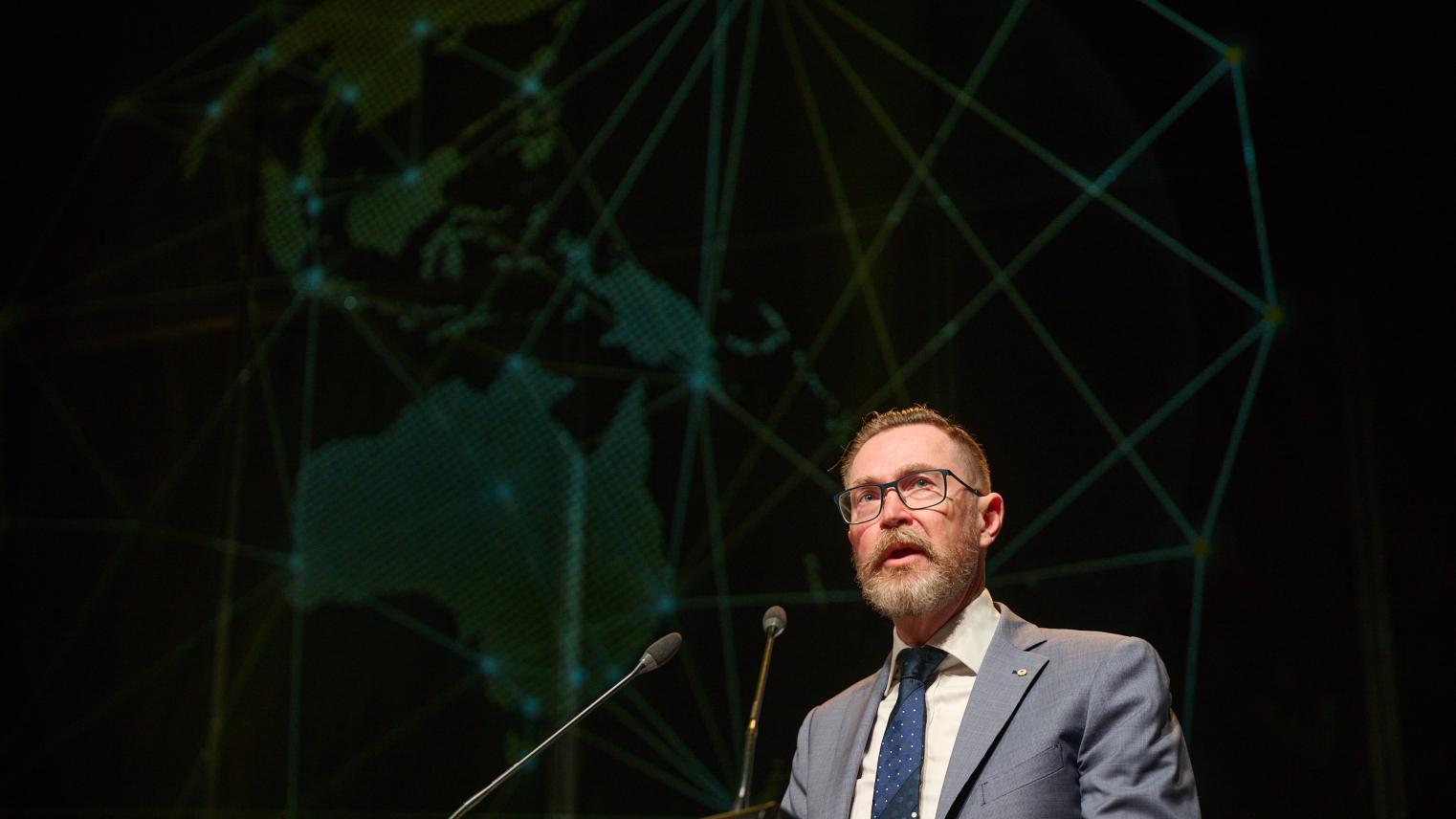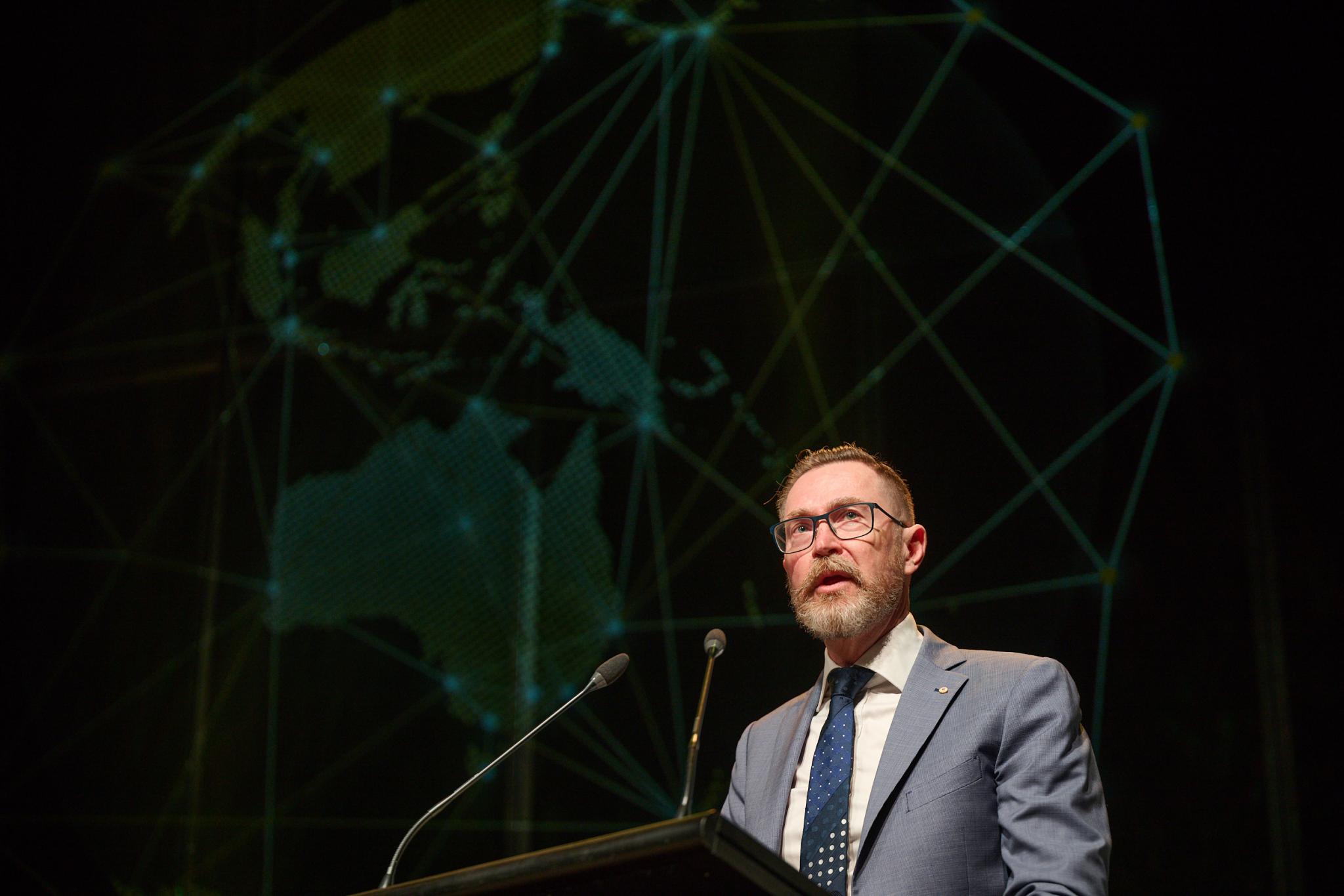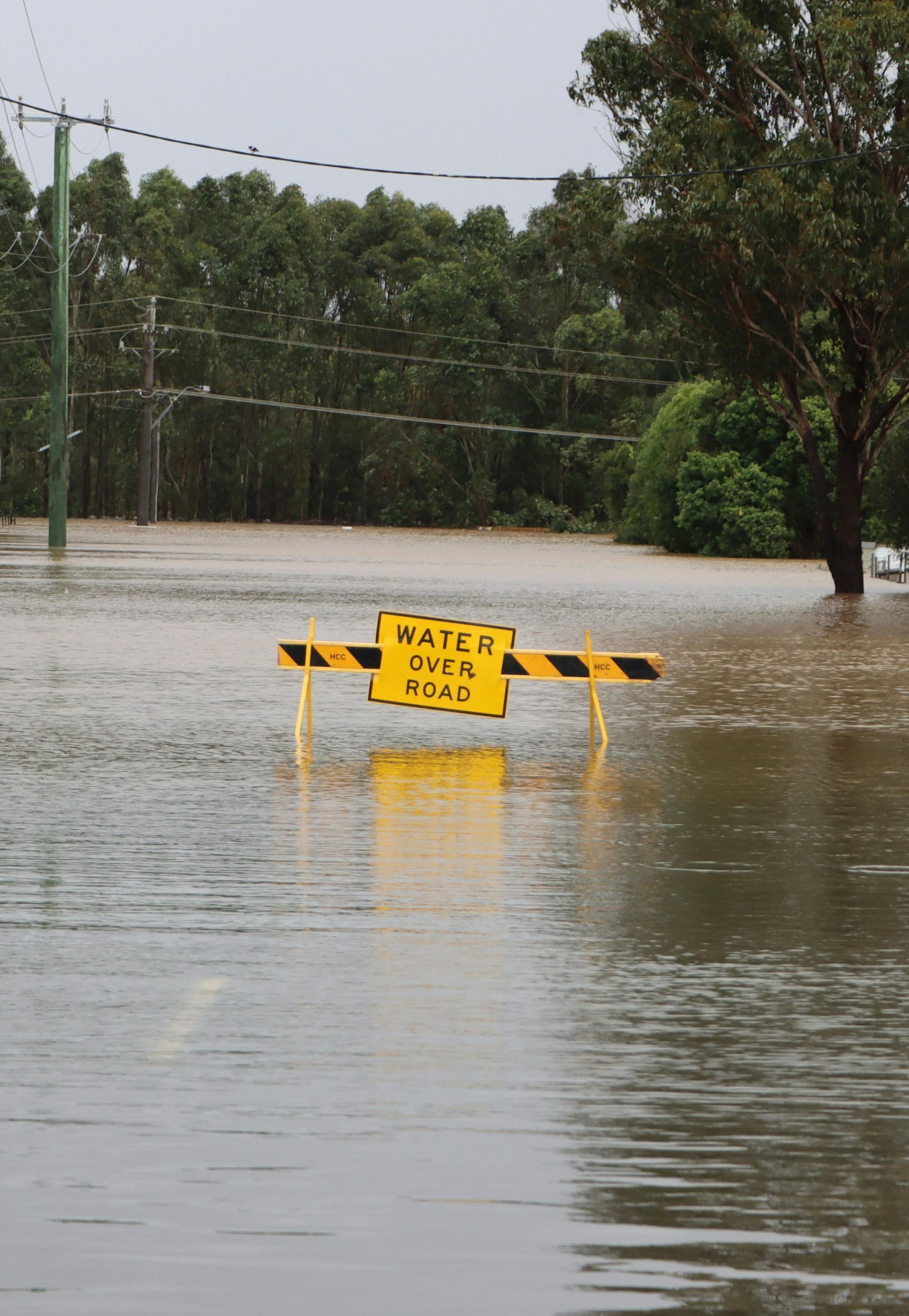Securing our Future: opening address by Professor Rory Medcalf

Opening address by Professor Rory Medcalf AM, Head of the ANU National Security College, delivered at NSC's Securing our Future conference on 9 April 2024.
Vice Chancellor and distinguished guests. My thanks to you Professor Bell for those thoughtful and inspiring words. My profound thanks to Ngunnawal-Ngambri custodian Paul House, for such a generous welcome to country. I echo the Vice Chancellor’s acknowledgement of the traditional custodians of the land where we meet. Australia’s security story has been a journey from exclusion to inclusion, where today the Commonwealth seeks to protect the interests, opportunities and freedoms of all our people. But it was not always so. We cannot be truly secure, confident and cohesive as a country if we are not honest about our history, and I commend the session on truth, violence and security in our program tomorrow. It’s so right we gather today in a location that has ancient meaning as a meeting place for First Nations. And it’s right that we gather in the Manning Clark Hall, a space that bridges respect for history with the nation-building vision at the heart of this university’s purpose.
As we begin, I also pay special thanks to the Canberra Children’s Choir and their conductor Tobias Cole for such an uplifting performance. We often don’t notice the words of our anthem. Perhaps we should. Australians all. One and free.
This conference is about our shared country, Australia, and above all about next generations. Securing the future, ours, theirs. For security can mean many things. But beyond day-to-day questions of safety, protection from threat and fear, it is about confidence and commitment in pursuit of a good future. In my view, security is not about fear, or passivity, or fatalism. Nor is it about a fixation with the mirage of absolute safety at the expense of all else that matters in living well.
Instead, security is above all a state of mind that helps us master anxieties by engaging confidently with risk. Yes, it requires physical protection and capabilities for defence. Lethal danger can hardly be imagined away in Ukraine, in the Middle East, or on the frontlines of China’s coercion in maritime Asia.
But security is also something larger: an idea — about what we value, about the future, about the rights and responsibilities of citizenship.
We each have our own idea of what security means in practice, and what are the best ways to seek and ensure it. The point of our discussions over the next two days is not harmony, even if we can hope for convergence. At times, there should be dissonance, or at best a constructive counterpoint.
Democracy is fundamental to Australian identity, as the exhibition outside reminds us. And we have made democratic resilience a critical theme of our proceedings. By definition, those many of us who care about protecting the nation’s interests, values and identity do not speak with one voice. But together we can all listen. And one ambition for the next two days is that each of us should hear something that makes us think again.
Whether about this country’s character and resilience, about our Indo-Pacific region and the world, about people and capability: the three concurrent streams of our forum. Or about the policy choices that need to be made today in the shadow of the future. And about how we make our national response more than the sum of its parts, while working with—not against—our shared national values. Because whatever else you think about Australia’s security in this age of contestation and change, of disruption and uncertainty, of acceleration and accumulation of risk, one thing is clear.
Business as usual is not enough.
Along with the dedicated team at the ANU National Security College—and I thank them all —I trust you will find this no ordinary conference. It’s not just the scale and complexity. It’s not just the quality and renown of the 100 speakers who are joining us. We want to drive a dialogue that begins, but does not end here: a distinctly Australian conversation about national security.
Around this city, purposeful and professional deliberations on defence, diplomacy, development, democracy, values, identity, social cohesion, resilience, preparedness, prosperity, technology, energy, supply chains and sustainability are going on all the time. But often these processes are compartmentalised in siloes of specialisation, secrecy, political caution, and the coded vocabulary of the insider. Or positions are taken on the basis of partisan agendas. Or time horizons are either narrowly within a three-year electoral cycle, or in a temporal never-never that tempts political irresponsibility.
This is hardly new, of course. And there’s been significant effort to improve national coordination and preparedness. But sometimes it still seems the present looks depressingly like the past, only more so. By convening this conference, we won’t just amplify the admiration of the problem. Policy, like politics, is a slow boring through hard boards. And amid disinformation and cultivated mistrust, it’s never been harder.
So, how can this conference help? The country’s strategic challenges demand tough decisions licensed by an inclusive conversation. What exactly are we protecting when we talk about national security? Do we really know and understand? Does the broader public? How can we have social licence for capabilities to guard against risks the public is not being told much about?
This is why, when it comes to the security landscape, the gap between what government knows and what it says needs to diminish, not widen.
This ranges across the full spectrum, from foreign interference to cyber risk, the vulnerabilities of our critical infrastructure and social cohesion alike, through to the impacts of climate change across our stressed regional environment. And it very much includes geopolitics and the military balance, including the strategic logic of nuclear-powered submarines, a capability that suits Australia’s long-distance geography. This greater community awareness is essential if we are to stand a chance of the nation being prepared for an era of global uncertainty greater than at any time since the 1940s.
In those days, this university was little more than a pioneering handful of pracademics in a paddock. Theirs was a vision of national recovery and future strength, of unity, understanding, hope and confidence. They were determined to build an institution that would help Australia advance from a world ruined by war. This university has come a long way in its relatively brief existence.
ANU National Security College is younger still, just 14 years old. Yet we are true to the same mission, and to its renewal. Established by the Rudd Government in 2010 as a joint initiative of the Commonwealth and the University, the College is now the go-to partner in developing people, ideas and networks for a secure Australian future. Our unique Charter reconciles academic freedom with a responsiveness to the policy needs of the nation.
As a trusted convenor of education, dialogue and thought leadership, we bridge disciplines, professions and viewpoints.
Thus, our speakers at this conference include Australian Government Ministers—for Foreign Affairs, Home Affairs and Cyber Security—and Shadow Ministers for Defence and Home Affairs, as well as other influential parliamentarians with independent outlooks. They are joined by leaders of government departments and agencies, military chiefs and respected experts from the Indo-Pacific and around the world, reflecting much of our family of dialogue partners. You will hear presenters from Canada, India, Indonesia, Finland, France, Germany, Japan, Papua New Guinea, Taiwan, the United Kingdom and the United States. We will gain from their contrasting worldviews and insights on how they do security at home. We welcome significant voices from academia, think tanks, industry and Australia’s diverse communities, including critical First Nations perspectives.
The conference will be a place for new research, including our Ideas Lab, with innovative academic projects selected competitively from around the nation. We will launch new publications on national preparedness, recommending closer coordination of national volunteer schemes and greater civilian capability for emergency response. We will unpack our recent report on intelligence reform, on how Australia can be a leader in open source and better informing the public about strategic risks. Of course, the secret stuff still matters, as it always has, and our other exhibition outside reminds us. We will promote a provocative new book, Girt by Sea—there’s the anthem again—in which the authors use a maritime lens to revisit how we might do holistic national strategy. Be sure to buy a copy and stick around for their book signing this afternoon.
Beyond research, the conference will engage all pillars of our work. The core capability uplift business of NSC is education, and many of you know us through our executive and professional development programs. Our alumni now number more than 12,000 Australian officials and security practitioners, plus smaller cohorts across Southeast Asia, States and Territories, and the private sector. Most of the 19 Commonwealth agencies that sponsor our teaching are represented here. And many of the conference speakers are NSC affiliates who teach into our courses.
Our Futures Hub leads a community of practice on futures analysis across tens of Commonwealth and subnational agencies, reaching also into academia, the private sector, international institutions and foreign governments. Our futurists have produced the fascinating preparatory survey that many of you contributed to, and tomorrow convene a session on climate futures.
Our academics produce not only research but cohorts of next-generation security thinkers and doers, through Masters, graduate certificate and PhD programs. Many of our students are here today, joined by diverse and rising stars from across the University. I encourage the students, like all of you, to share their insights. And I know the rest of you will be generous with career advice.
The conference will show not only what the ANU National Security College is and what we do, but where we are going. For instance, our expanding project on the geopolitics of technology. And our trusted programs of briefings for parliamentarians and their staff across the full spectrum of security issues. But this conference is our largest single endeavour yet, and we are serious about it propelling a national conversation. So I am pleased to announce that later this year the ANU National Security College will go on the road.
We will initiate a broader national process of community consultation on security. We want to help generate a clearer understanding of what Australians think when they think about national security.
And we will synthesise and frame that knowledge to help government and parliament as they consider policy choices into the future. A team of NSC staff and affiliates will conduct a structured series of in-person and virtual meetings and interviews around the country. This won’t just be a perfunctory foray out of the Canberra bubble and into those other bubbles—corporate boardrooms, State cabinets, think tanks and universities in metropolitan centres. Our team will hold consultations in a cross-section of locations spanning remote, rural and suburban Australia as well as secondary cities. We will seek to comprehend the diversity of perspectives in today’s Australia, identifying the risks or realities of fragmentation as well as opportunities for convergence.
Our Community Consultations on Australia’s National Security will also invite submissions from organisations and individuals. The focus will be qualitative—not just what people think, but why—but will be supplemented by analysis of the substantial opinion polling that already exists, including through the respected ANU Poll. And at the end, in 2025, we will prepare and publish a report as an independent resource for governments and parliaments alike.
The sort of resource that would be useful, for instance, for a government considering the value and shape of a national security strategy. We will reach out to many of you as we begin this process. So please consider this conference a prologue not a self-contained essay. I wish you well in your discussions. I know you will make these two days matter. Thank you for being here.
About the conference
On 9-10 April 2024, NSC delivered the inaugural Securing our Future conference, with more than 400 participants and 100 speakers. The conference was a landmark event in the mission of the College, which delivered an inclusive and dynamic dialogue about Australia's interests, values, identity, resilience and security risks. This was no ordinary conference—the focus was on engagement and participation, exploring dissonance and convergence in search of practical ideas for our nation. Speakers included Ministers, parliamentarians, agency heads, military chiefs, experts, practitioners, thinkers and emerging voices from across Australia and around the world. With more than 20 panels across three thematic streams—strategy, capability and resilience—the conference ranged far beyond constricted concepts of security.
The agenda encompassed social cohesion, democratic resilience, workforce, intergenerational wellbeing, economics, technology, intelligence, law, transparency, human security, climate, the maritime domain, changing ways of war, geopolitics, partnerships and the US alliance in a contested world.


